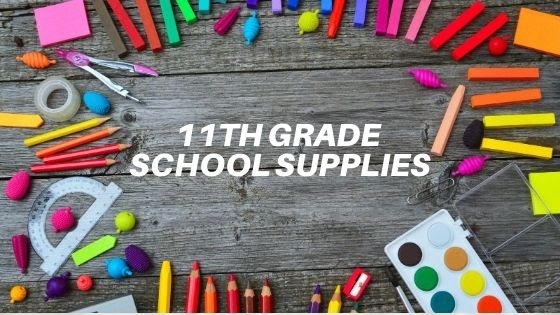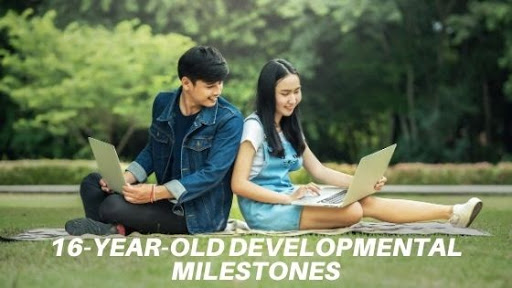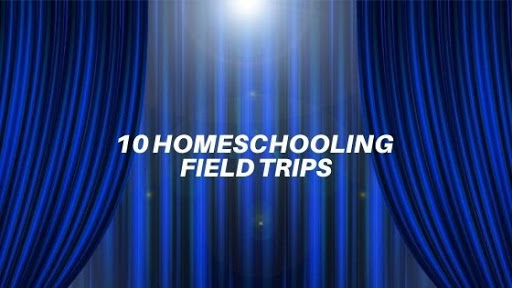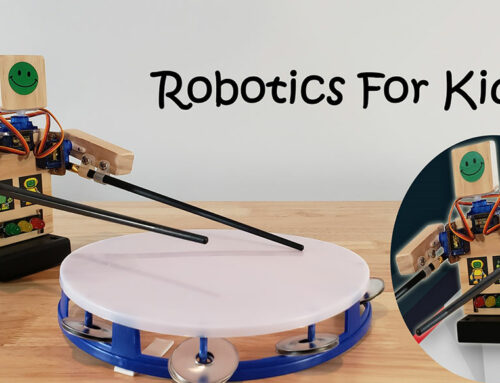Sixteen is a big year for both you and your child.
Your teen is thinking about life plans and college choices now more than ever. Interest in romantic relationships may increase as your teen grows closer to adulthood. And, certain activities, such as driving for the first time and getting a part-time job, may be the norm at your house now.
At 16, your child shows increased independence. Blogging or writing may be helpful to express new emotions while teens at this age typically prefer to communicate more by text message and social media than by face-to-face conversations.
This, also, is the year your teen shows a deeper capacity for caring and sharing, and an increased interest in developing more intimate relationships.
Children who are homeschooled show fewer instances of bullying, anxiety, and depression.
However, be aware that negative thoughts or emotions could arise during this time as your teen navigates these formative years.
Homeschooling curriculum in the state of Texas must include the five basic subjects of reading, spelling, grammar, mathematics and good citizenship.
Science, history, and social studies are also included for you.
Not in Texas? Check out state requirements for homeschooling 11th grade in your state.

Suggested School Supplies for 11th Grade
- Pencils
- Pencil sharpener
- Eraser
- Pens
- Lined paper, spiral notebooks, and/or composition notebooks
- Index cards
- Binders (if needed)
- Folders
- Colored pencils
- Highlighters
- Whiteboard
- Dry erase markers
- Ruler
- Scissors
- Stapler
- Glue sticks
- White glue
- Tape
- Bookmarks
- Globe
- Wall maps of the world and the United States
- Library card
- 3-hole punch
- Dictionary
- Thesaurus
- Student planner
- Expandable folder with dividers
- Graphing calculator (if needed)
- USB drive (if needed)
- Computer supplies (as needed; paper, ink cartridges)
11th Grade Milestones by Subject

Language Arts for 11th Grade
From the TEA.
- Focuses on listening, speaking, reading, writing, and thinking
- Able to give a presentation using informal, formal, and technical language effectively
- Presentations meet the needs of audience, purpose, and occasion
- Uses pauses for effect, volume, enunciation, purposeful gestures, eye contact, and conventions of language to communicate effectively in a formal presentation
- Participates collaboratively, building on the ideas of others, contributing relevant information, developing a plan for consensus building, and setting ground rules for decision making
- Uses print or digital resources such as glossaries or technical dictionaries to clarify the meaning of technical or discipline-based vocabulary
- Distinguish among denotative, connotative, and figurative meanings of words by using context clues
- Reads and analyzes American literature across literary periods
- Able to paraphrase and summarize texts in ways that maintains meaning and logical order
- Understands the explicit and implicit meaning of texts
- Understands the relationships among thematic development, characterization, point of view, significance of setting, and plot in a variety of literary texts
- Understands and is able to explain how characters’ behaviors and underlying motivations contribute to moral dilemmas that influence the plot and theme
- Understands how the historical, social, and economic context of setting(s) influences the plot, characterization, and theme.
- Analyzes relationships among characteristics of poetry, including stanzas, line breaks, speaker and sound devices in poems across a variety of poetic forms
- Understands and is able to analyze how the relationships among dramatic elements advances the plot, theme and structure
- Reads grade-appropriate texts independently and is able to self-select texts and read independently for a sustained period of time
- Uses metacognitive skills to increase effective study strategies
- Able to plan a piece of writing appropriate for various purposes and audiences by generating ideas through a range of strategies such as brainstorming, journaling, reading, or discussing
- Develops drafts into a focused, structured, and coherent piece of writing
- Revises drafts to improve clarity, development, organization, style, diction and sentence effectiveness, including use of parallel constructions and placement of phrases and dependent clauses
- Able to edit drafts using standard English conventions
- Incorporates a variety of sentence structures and avoids unintentional splices, run-ons, and fragments
- Uses consistent, appropriate verb tense including active and passive voice
- Uses correct capitalization and punctuation including commas, semicolons, colons, dashes, and parentheses to set off phrases and clauses
- Avoids spelling mistakes
- Compose informational texts such as explanatory essays, reports, and personal essays
- Able to compose correspondence in a professional or friendly structure
- Able to use source materials ethically to avoid plagiarism.
Writing Skills Checklist for 11th Grade
- Writes legibly in print and cursive
- Writes to express feelings, tell stories, and summarize information
- Able to follow complex written directions and write effective directions
- Understands how to use reference materials, takes notes, and prepare written reports
- Uses grammar and punctuation correctly and effectively in writing
- Can self and peer edit written works
- Able to write based on the needs of the audience or assignment by changing sentence structure, vocabulary, and voice
- Uses correct capitalization, punctuation (including commas, semicolons, colons, and dashes) and spelling with ease
- Uses increased planning strategies to search for and combine information from multiple sources to create longer and more complex works
- Understands the use of citations and footnotes
- Creates original works using effective written communication skills
- Understands what plagiarism is; and why and how to avoid it.

Forgeign Language for 11th Grade
Learning a foreign language not only makes you globally literate but it also makes you a better partner in our world community. Plus, foreign language study increases cognitive development, creativity, and divergent thinking.
And, with online resources and phone apps, studying a foreign language is now easier than ever. Here are a few links we’ve discovered to get you started to discover the languages and cultures that make up our world.
- Free Spanish-learning Resources Online A comprehensive resource list brought to you by A2Z Homeschool.
- Duolingo The free app offers you the option to “Learn a language for free. Forever.”, or an ad-free, paid subscription with progress tracking. Please note that non-traditional families are sometimes featured in their lessons.
- Babble Offers 14 different languages and a discount to students.
- Rosetta Stone Their patented TruAccent speech-recognition engine helps you fine-tune your pronunciation from the very first lesson. Rosetta Stone Homeschool offers a 7-day free trial to get your family started on the path to foreign language learning.
- American Sign Language ASLU on YouTube with Bill Vicar is a great visual resource for your active learner, while ASLPro is a free resource with dictionaries, tutorial videos and more. To use it on your phone, use the url www.aslpro.cc. Another great resource is SignLanguage101.com.
- To further your studies, numerous books on deaf culture are also available. If you purchase these through AmazonSmile, please choose Texas Home School Coalition as your charity of choice!
History and Social Studies for 11th Grade
From the TEA.
- Understands how geography and the changes in our planet over time affect cultures, civilizations, and our history as a whole
- Understands how people, places, and environments are connected and interdependent by comparing ways that humans depend on, adapt to, and modify the physical environment to survive
- Understands the consequences of extreme weather and other natural disasters such as El Niño, floods, tsunamis and volcanoes on people and their environment, and how they affect our lithosphere, atmosphere, hydrosphere, and biosphere
- Describes how weather, tectonic forces, erosion, and soil-building processes and other physical processes affect the environments of regions
- Understands how elevation, latitude, wind systems, ocean currents, position on a continent, and mountain barriers influence temperature, precipitation and distribution of climate regions
- Able to analyze how the character of a place is related to its political, economic, social and cultural elements; and know how to interpret political, economic, social, and demographic indicators (gross domestic product per capita, life expectancy, literacy and infant mortality) to determine the level of development and standard of living in nations using the levels as defined by the Human Development Index
- Understands the rule of law from ancient to modern times
- Able to identify examples of individuals who led resistance to political oppression such as Nelson Mandela, Mohandas Gandhi, Las Madres de la Plaza de Mayo and Chinese student protestors in Tiananmen Square
- Able to identify examples of American ideals that have advanced human rights and democratic ideas throughout the world
- Identifies physical and/or human factors such as climate, vegetation, language, trade networks, political units, river systems, and religion that constitute a region
- Understands and interprets maps to explain the division of land, including man-made and natural borders, into separate political units such as cities, state or countries
- Able to compare how democracy, dictatorship, monarchy, republic, theocracy, and totalitarian systems operate in specific countries
- Uses social studies terminology correctly
- Creates appropriate graphics such as maps, diagrams, tables, and graphs to communicate geographic features, distributions, and relationships
- Able to plan, organize and complete a research project that involves asking geographic questions; acquiring, organizing, and analyzing information; and is able to communicate the results.

Math Checklist for 11th Grade
From the TEA.
- Applies math skills to daily life and understands how they apply to business, society, and everyday situations
- Fluently adds, subtracts, multiplies and divides rational numbers
- Demonstrates mathematical understanding of ideas by using precise mathematical language verbally or in writing
- Uses knowledge previously learned as a foundation to gain new understanding of mathematical concepts
- Broadens knowledge of quadratic functions, exponential functions, and systems of equations by learning logarithmic, square root, cubic, cube root, absolute value, rational functions, and their related equations
- Able to connect functions to their inverses and associated equations and solutions in both mathematical and real-world situations
- Knowledge of data analysis and numeric and algebraic methods
- Able to graph the functions f(x)=√x, f(x)=1/x, f(x)=x3, f(x)= 3√x, f(x)=bx, f(x)=|x|, and f(x)=logb (x) where b is 2, 10, and e, and, when applicable, analyze the key attributes such as domain, range, intercepts, symmetries, asymptotic behavior, and maximum and minimum given an interval
- Able to graph and write the inverse of a function using notation such as f -1(x)
- Understands that quadratic and square root functions, equations, and quadratic inequalities can be used to model situations, solve problems, and make predictions
- Able to write the quadratic function given three specified points in the plane
- Able to write the equation of a parabola using given attributes, including vertex, focus, directrix, axis of symmetry and direction of opening
- Able to solve quadratic and square root equations
- Understands that cubic, cube root, absolute value, and rational functions, equations and inequalities can be used to model situations, solve problems, and make predictions
- Adds, subtracts, and multiplies complex numbers and polynomials
- Able to determine linear and quadratic factors of a polynomial expression of degree three and of degree four, including factoring the sum and difference of two cubes and factoring by grouping
- Understands and is able to write the domain and range of a function in interval notation, inequalities, and set notation
- Able to apply mathematical processes to analyze data, select appropriate models, write corresponding functions, and make predictions from a given set of data using linear, quadratic and exponential models
- Uses select tools including real objects, manipulatives, paper and pencil, technology, mental math, estimation, and number sense to solve problems
- Able to use graphs, maps, or other representations to learn and convey information.

Science Experiments and Skills for 11th Grade
From the TEA.
- Conducts laboratory and field investigations, uses scientific practices during investigations, and makes informed decisions using critical thinking and scientific problem solving
- Demonstrates an understanding of the use and conservation of resources and the proper disposal or recycling of materials
- Understands and describes the relationships of biotic and abiotic factors within habitats, ecosystems, and biomes
- Able to understand the difference between scientific hypotheses and scientific theories
- Identifies native plants and animals using a dichotomous key
- Understands the role of native plants and animals within a local ecosystem and is able to compare them to plants and animals in ecosystems within four other biomes
- Able to predict how the introduction or removal of an invasive species, or the extinction of a species, may alter the food chain and affect existing populations in an ecosystem
- Studies the use and conservation of both renewable and non-renewable resources as they pertain to sustainability and understands the impact of waste management methods such as reduction, reuse, recycling and composting on resource availability
- Able to define and identify the components of the geosphere, hydrosphere, cryosphere, atmosphere and biosphere and the interactions among them
- Able to describe and compare renewable and non-renewable energy derived from natural and alternative sources such as oil, natural gas, coal, nuclear, solar, geothermal, hydroelectric and wind
- Investigates the effects of energy transformations in terms of the laws of thermodynamics and the energy interactions within an ecosystem
- Relates carrying capacity to population dynamics and is able to calculate birth rates and exponential growth of populations
- Understands how to make predictions about the impact on populations of geographic locales due to diseases, birth and death rates, urbanization and natural events such as migration and seasonal changes and the impacts by natural events such as tectonic movement, volcanic events, fires, tornadoes, hurricanes, flooding, tsunamis and population growth
- Understands and describes how temperature inversions impact weather conditions as well as impacts on global warming, ice cap and glacial melting and changes in ocean currents and surface temperatures
- Knows the impact of human activities on the environment such as the causes of air, soil and water pollution and investigates types of pollution such as chlorofluorocarbons, carbon dioxide, pH, pesticide runoff, thermal variations, metallic ions, heavy metals and nuclear waste
- Able to describe the effects of pollution on global warming, glacial and ice cap melting, greenhouse effect, ozone layer and aquatic viability
- Understands the effect of human activities on the environment, including habitat restoration projects, species preservation efforts, nature conservancy groups, hunting, fishing, ecotourism, all-terrain vehicles and small personal watercraft
- Analyzes how ethical beliefs can be used to influence scientific practices such as methods for increasing food production
- Evaluates differing views on the existence of global warming
- Knows the advantages and disadvantages of “going green” such as organic gardening and farming, natural methods of pest control, hydroponics, xeriscaping, energy-efficient homes and appliances, and hybrid cars
- Familiar with past and present local, state, and national environmental legislation, including Texas automobile emissions regulations, the National Park Service Act, the Clean Air Act, the Clean Water Act, the Soil and Water Resources Conservation Act and the Endangered Species Act, plus international treaties and protocols such as the environmental Antarctic Treaty System, Montreal Protocol and Kyoto Protocol
- Conducts laboratory and field investigations using safe, environmentally appropriate, and ethical practices
- Understands appropriate first aid responses to accidents that could occur in the field such as insect stings, animal bites, overheating, sprains and breaks
- Demonstrates safe practices during laboratory and field investigations including the appropriate use of safety showers, eyewash fountains, safety goggles, chemical splash goggles, and fire extinguishers
- Able to collect data and make measurements with accuracy and precision while using the proper tools and equipment to do so
5 Science Experiments for 11th Grade
What better way to enhance understanding of our natural world than to incorporate science into your 11th grade school day? Here are five fun and easy experiments that you can do at home.

Good Citizenship Lesson Plan 11th Grade
Being a good citizen not only means understanding your right to vote and the privileges of citizenship, but also respect for our planet, good stewardship, and understanding the world around us.
Below are ideas to assist you and your teen in understanding the relationship among individual rights, responsibilities, duties, and freedoms in societies with representative governments and why civic participation is so important.
If you are in need of resources and lesson plans to fulfill this requirement, consider joining THSC. We offer our “Lone Star Study” guide as a free download for our members.
Here are a few ideas:
- Become involved in events and initiatives such as Capitol Days sponsored by THSC
- Learn about the electoral process in local, state, and national elections
- Register to vote and vote! Better yet, take your child with you to see the voting process. Children under the age of 18 are allowed to go with you and even go inside the booth with you in every state in the United States. In Texas, one child under the age of 18 is allowed to accompany a parent.
- Compare the principles and concepts of the Texas Constitution to the U.S. Constitution, including the Texas and U.S. Bill of Rights. How are they the same? How are they different?
- Discover the meaning and history of the major historical documents that defined our country.
- Write a letter to your elected officials in support or against legislation affecting lives within your community. Start a letter writing campaign to get others involved!
- Attend city council meetings as a family and discover the inner workings of your town.
- Volunteer at a food pantry, animal shelter or other organization. Many places allow youths to participate with a parent, or after a certain age, on their own.
- Learn about local and national non-profit organizations and how each serves your community
- Attend rallies of causes you believe in as a family
- How is your town significant in Texas history? Find out! Online research, a visit to your local library or a chat with a local historian will uncover the rich history of the place you call home
- Discover how each of us affects the environment from how much water we use to how much trash we produce. Then, discuss and implement ways you as a family can lessen your impact.
- Learn about recycling in your area. What items are recyclable and where and how do you recycle them? Discuss as a family why recycling is so important.
- Keep our state clean by picking up litter everywhere you go
- Did a member of your family participate in World War I or II? Where were you on September 11, 2001? Chatting with someone who saw a major historical event firsthand opens our eyes to the realities and significance of our history from a whole new perspective.

16-Year-Old Developmental Milestones
All children develop at different rates. However, certain skills are easily identified by the age of sixteen. If you have concerns about your child’s development after reviewing this list, please discuss those with your healthcare provider.
16-Year-Old Gross Motor Skills
Source: Michigan State University.
- Females have typically reached maturity and are at their full height and have completed puberty
- Males continue to grow; voices will deepen and they will gain muscle mass easily
- Reaction times improves, contributing to motor skill development
- Shows increased awareness of physical skills in all areas and is able to coordinate movements like dribbling and shooting a basketball, dance or martial arts with better coordination
- Overall increase in large muscle development, strength and hand-eye coordination continue
16-Year-Old Fine Motor Skills
- Fine motor skills typically stop improving by age 15, however activities such as folding clothes, typing, writing and drawing continue to increase skills
- Fine motor skills used in team sports continue to increase
- Hobbies and activities further increase fine motor skill development such as making jewelry, playing an instrument, playing video games, etc.
Language Development and Comprehension for 11th Grade
- Shows increased independence
- Often prefer to communicate via text message and social media
- May find blogging or writing helpful to express themselves
- Has a deeper capacity for caring and sharing
- Shows an interest in developing more intimate relationships
- Vocabulary continues to increase as diversity in reading increases
- Uses complex sentences and different types of sentences to express ideas clearly
- Conflict with parents tends to decrease
- Contributes meaningfully and understands social etiquette in conversations
- More aware of others’ perceptions
- Able to shift conversations based on increased awareness of the listener’s needs and engage in meaningful and respectful discourse.

10 Classic Books or Series Homeschool Reading List for 11th Graders
Find these books at your local library or find them at any bookstore. If you shop on Amazon, please visit Amazon Smile and choose Texas Home School Coalition as your charity of choice!
We also recommend checking with a site such as Redeemed Reader or Plugged-In as to the appropriateness of any particular book for your child and their personal maturity level.
Another wonderful place for book recommendations is The Read-Aloud Revival, which features booklists and reviews for all kinds of books and reading levels.
- The Hobbit and The Lord of the Rings trilogy by J. R. R. Tolkien. Drawing from his extensive knowledge of philology, colorful myth and folklore from a vast array of cultures, these books are the saga of a group of sometimes reluctant heroes who set forth to save their world from malevolent forces. They teach students how to do what is right regardless of the odds against them and to fight evil, in whatever form it presents itself.
- Romeo and Juliet by William Shakespeare. This tale of two young star-crossed lovers whose deaths ultimately reconcile their feuding families has been read and performed since 1597.
- Pride and Prejudice by Jane Austen. Since 1813, Pride and Prejudice has continuously appeared on the lists of “most-loved books” among literary scholars and the reading public. With memorable characters including Elizabeth Bennet and the famous Mr. Darcy, this must-read shows that love comes in the most unlikely of places, and that one should not judge upon first impressions. The novel also unveils the manners, education, marriage and prestige of money during the Regency era in Great Britain’s history.
- The Great Gatsby by F. Scott Fitzgerald. Considered one of the greatest novels ever written, Fitzgerald explores the themes of decadence, idealism, resistance to change and social upheaval and excess. Written in 1925, it creates a portrait of the Roaring Twenties that has been described as a “cautionary tale regarding the American Dream.”
- Ender’s Game by Orson Scott Card. Set in Earth’s future, where humankind has survived two attacks by an insectoid alien species nicknamed “buggers“. In anticipation of a third invasion, children compete in increasingly difficult games in order to fight in the inevitable war. This book was recognized as “best novel” by the 1985 Nebula Award and the 1986 Hugo Award in the genres of science fiction and fantasy.
- The Diary of a Young Girl by Anne Frank. Also known as The Diary of Anne Frank, it is a factual account written by Anne herself while in hiding for two years with her family during the Nazi occupation of the Netherlands. The diary was retrieved by Miep Gies following the families arrest by Nazi officials and given to Anne’s father, Otto Frank, just after the war was over.
- Jane Eyre by Charlotte Bronte. Published in 1847, this novel is considered ahead of its time due to Jane’s individualistic character and the work approaches the topics of class, sexuality, religion and feminism. Charlotte Brontë has been called the “first historian of the private consciousness” as the novel revolutionized prose fiction by being the first to focus on its protagonist’s moral and spiritual development through an intimate first-person narrative. This work is also considered one the most famous romance novels of all time alongside “Pride and Prejudice” (also included in this list) by Jane Austen.

10 Awesome Homeschool Field Trip Ideas for 11th Graders
Don’t feel you have to leave your town, your neighborhood or even your own home to enjoy a fun filled field trip! Be creative! A walk around your backyard or a search on the Internet can be an educational experience.
- Government: THSC Capitol Days are one-day, hands-on events that allow homeschooling families to fully participate in the state legislative process. These events give the opportunity to defend the rights of homeschool families in Texas, meet representatives and staff and actually help pass a law. A free grade specific tour is available at our Texas state capitol, which includes, history, architecture and the legislative process, and a scavenger hunt for high school students.
- First Responder Appreciation: Police, fire and EMS stations are located throughout most cities. Locate the one closest to your house and give them a call! Many are ready for tours, and if one isn’t available, gather up some goodies and some thank you cards as a gift to drop off to show them how much they are appreciated. Our frontline workers need our support every day.
- Job Fair: We are getting closer to graduation, so your child is probably talking more about college and a career path these days. Electricians, college professors, nurses and more are available to show you the ins and outs of their jobs and help guide an eager learner on a possible career choice. Visit a farm, watch a lawyer in court, chat with a pastor or priest or cook alongside a chef. Reach out! Professionals in every background were once where you are.
- Historical Sites: From the San Jacinto Battleground State Historic Site in La Porte to the Alamo in San Antonio, numerous historical monuments, museums, battlegrounds and sites are ready for you to see across this great state. What better way to bring your homeschool studies to life than by visiting the cities and towns you are learning about each day!
- Museums: Whatever you are interested in, you can guarantee you’ll find a museum for it in Texas. Now, many museums are offering virtual tours you can enjoy from the comfort of your home. The Frontiers of Flight Museum at Dallas Love Field offers online tours and stories of its exhibits including the “Titanic of the Skies,” a history of the Hindenburg tragedy and even a Google Earth-style, street view of its interior exhibits for you to navigate through. Set your sights higher than our atmosphere with a visit to the Space Center in Houston. The center is filled with 400 space artifacts including the largest collections of spacesuits and Moon rocks on public display in the world. The center is the Official Visitor Center of NASA Johnson Space Center and a Smithsonian Affiliate.
- Sports: It’s no secret we love our sports in Texas. Major league teams across our state offer tours of facilities including a behind the scenes look into the lives of the players. AT&T Stadium in Arlington, Home of the Dallas Cowboys, offers not only VIP, educational and self-guided tours, but also one including their world-renowned, contemporary art collection showcased throughout the stadium.
- Libraries: Teen groups, anime meetups, coding camps and more are held throughout the year at local libraries throughout Texas. Check with your local library and see what activities are available and what’s the newest must-read to discover.
- Theater/Music/Art: Grab a blanket and head to a free outdoor concert, stroll through a sculpture garden or get those must-see tickets to the latest show. If you prefer virtual performances, National Public Radio (NPR) is offering an updated multi- genre list of daily concerts and performances from all over the world. You can see the most current list here. Many theatrical performances and events are now available by Zoom or YouTube such as those at The Actors Fund.
- Get Outside: Being outside opens a world of possibilities when it comes to your teen’s education. Play a game and hone those fine and gross motor skills. Learn about weather systems. Discover constellations and discuss the night sky. All this can be found in your own back yard. Need a road trip? Our Texas state parks offer special activities throughout the year including hiking tours, educational programs, scavenger hunts and more. Not to mention an overnight camping trip can sharpen your survival skills!
- Living History: Across our state, groups and organizations work diligently to ensure historical accuracy and diverse programming to keep the craftsmanship, allure and heirloom skills of our past available for your family to learn today. The Texas Historical Commission keeps a running list of special events and activities taking place across our state for you and your family to enjoy.
We believe homeschooling is one of the best models for educating children, which is why we support families with encouragement and practical resources like you found in this article.
We hope you found this helpful in preparing to homeschool 11th grade. Have fun this year!
Won’t you join us in making these resources available to homeschooling families by becoming a member?




